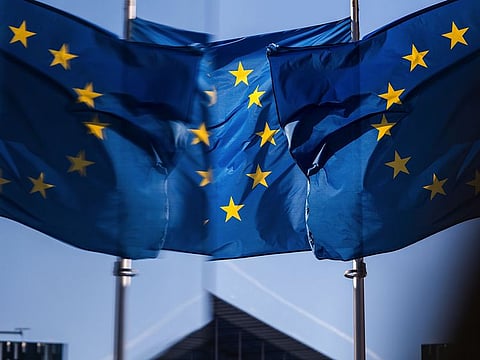Tech giants could face hefty fines under EU's new Digital Services Act
Companies could be fined as much as 6% of their global annual sales

Brussels: The world's biggest technology companies could face billions of dollars in fines for breaches of new European Union legislation after lawmakers reached an agreement on its scope early Saturday.
The landmark Digital Services Act is the EU's answer to what it sees as a failure by tech giants to combat illegal content on their platforms. Noncompliance could cost companies as much as 6 per cent of global annual sales when the rules go into effect, in 2023 or 2024 depending on their size.
Failures could be extremely costly. Based on their reported 2021 annual sales, Amazon.com Inc, for instance, could face a theoretical fine of as much as 26 billion euros ($28 billion) for future noncompliance with the DSA. Repeat offenders could be barred from operating in the EU.
Facebook whistle-blower Frances Haugen said the DSA could represent a "global gold standard" for regulating social media companies. After more than a year of internal wrangling, key rules will include:
All websites will be accountable to the DSA, but platforms with more than 45 million users in the EU will have to abide by stricter rules such as paying Brussels a supervisory fee of as much as 0.05 per cent of their global annual revenue to enforce the law, and providing regulators with annual reports about illegal and harmful content on their sites.
Second major legislation
The DSA is the second major piece of legislation in Brussels' digital rulebook to be cemented in a month. On March 24, the EU finalized its Digital Markets Act, a related framework that requires "gatekeepers" to adhere to strict antitrust rules. Both laws were designed to address market dominance and internet safety. But while the previously-announced DMA targets about a dozen major, mostly U.S.-based tech companies, the DSA sets basic standards for all websites.
"With the DSA, we help create a safe and accountable online environment," Margrethe Vestager, the EU's competition chief, said in a statement on Saturday. "With today's agreement we ensure that platforms are held accountable for the risks their services can pose to society and citizens."
The deal still needs to be signed-off by parliamentarians and the 27 EU countries before being made official later this year. Large companies will then have four months to comply with the rules, and all other companies will have 15 months. Smaller companies can apply to be exempt from certain rules.
Google said it welcomed the DSA's goals and looked forward "to working with policymakers to get the remaining technical details right to ensure the law works for everyone."



